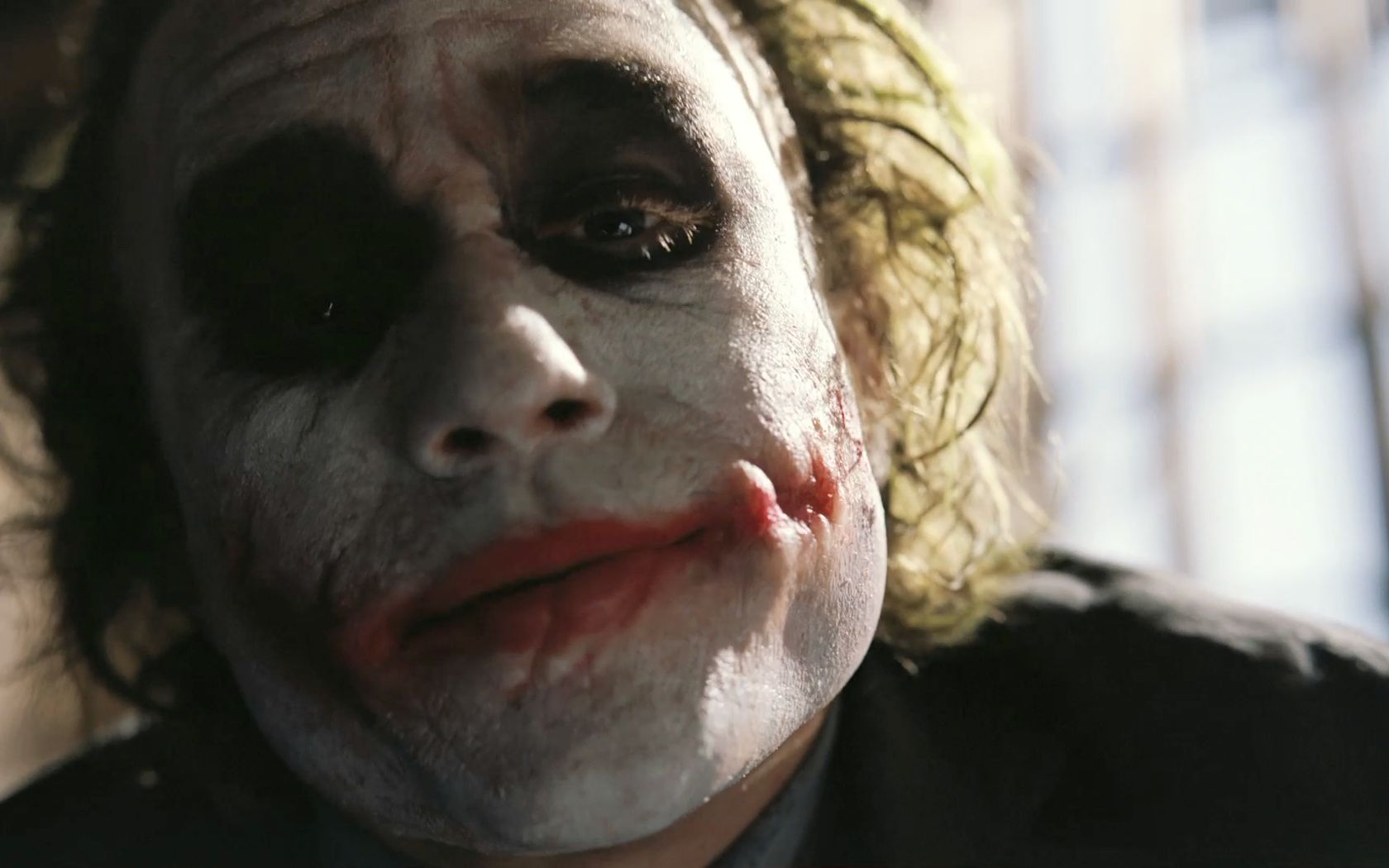Until Tuesday afternoon, when the paramedics stretchered his body past a gathering crowd and into an ambulance destined for the morgue, which young man didn’t envy Heath Ledger (The Joker)?
Fate had apparently showered this blond cinematic icon with more than his share of gifts and good fortune.
He had a baby daughter with the love of his life.
Critical acclaim – including an Oscar nomination for his role in Brokeback Mountain – gilded the appeal of his good looks; his movie fees were measured in millions.
All this and still only 28. So much for the Tinseltown hype. The Australian died naked, alone and surrounded by prescription drugs.
We might never discover whether his apparent overdose was accidental or intended.
But Ledger reportedly exhausted to the point of illness by his frantic work schedule, had long felt uncomfortable in the limelight.
There had been panic attacks when he hit the big time and, more recently, sleeplessness and strange, morbid thoughts.
He hated the attention, self-marketing and rootlessness that his profession demanded.
According to his family, the latter had contributed to the ending, a few months ago, of his engagement to Michelle Williams, mother of his two-year-old daughter Matilda Rose.
Little more than a year before, Ledger, in a rare public utterance about his private life, had eulogized their small family.
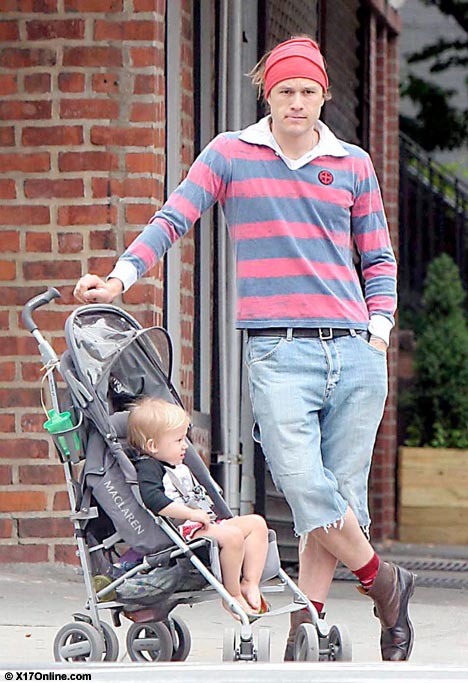
It was the best thing that had ever happened to him. And now it was broken.
One is reminded that Ledger’s parents named him after Heathcliff, the tragic anti-hero of Wuthering Heights, who bitterly resents his place in society and dies mourning his great, lost love.
Andrew Ledger was born and brought up in the city of Perth, Western Australia.
His sister was named Cathy, after the Wuthering Heights heroine.
His mother taught French while his father was a mining engineer and sometime racing driver.
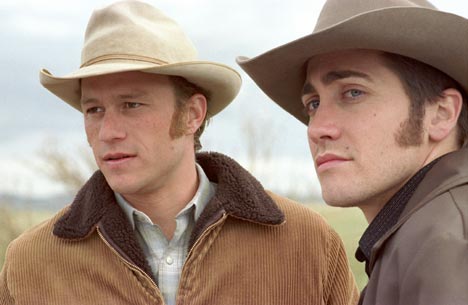
The boy took an interest in acting only because the alternative to drama class at his private school was cookery. His first lead was aged ten in a production of Peter Pan.
That same year his parents divorced and the rest of his childhood was spent alternating between their two homes.
While his father wanted him to go into motorsport, Ledger had other ideas and left school at 16 to pursue an acting career.
With a best friend, he drove across Australia to Sydney, arriving with only a few cents in his pocket.
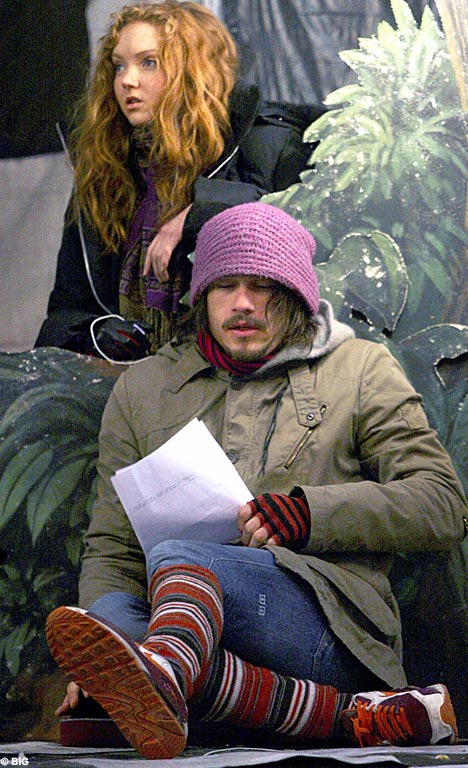
There he began to pick up roles in films and TV series including that staple of budding Aussie thespians, Home and Away. “I had to eat,” he quipped.
A lead role in high-camp swords and sandals epic attracted Stateside attention and Ledger’s breakthrough came in 1999 when he moved to LA.
He was given his first lead role in A Knight’s Tale, a curious medieval romp with a rock ‘n’ roll soundtrack. It was a hit and a star was born.
A particular kind of star – the romantic hunk. And Heath Ledger was already experiencing misgivings.
“I didn’t have the confidence to say, ‘Stop! I don’t want to do this anymore!’,” he admitted.
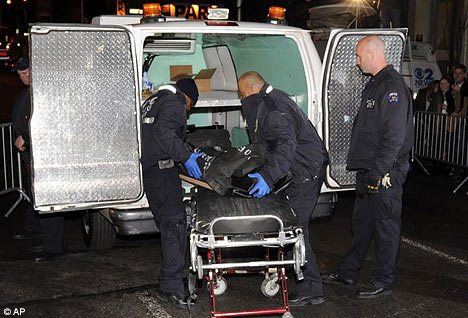
In another interview Heath Ledger said he was almost physically repelled by his face on giant billboards promoting the film, adding: “I pretty much had anxiety attacks about just leaving the house.”
At one studio meeting, Heath Ledger snapped. He stood up and asked: “Could you wait one second, please?” and escaped to the bathroom where he burst into tears and began to hyperventilate, banging his head against the wall. His life was out of his control, it seemed.
A director who worked with him observed: “I think he was a bit damaged by the American publicity machine.
“He lost those crucial years between 19 and 24 when you discover who you are as an adult.”
Heath Ledger began to seek roles that did not trade on his looks.
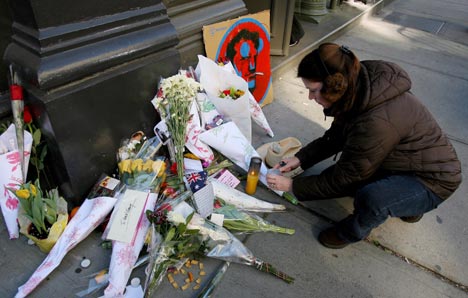
On the set of one such anti-fame exercise, the unsuccessful biopic Ned Kelly, he met fellow-Australian Naomi Watts.
Though she was ten years his senior – like a previous Hollywood girlfriend Heather Graham – they fell in love. The relationship lasted two years.
Within months of its ending, Ledger met the woman who promised to change his life, on the set of the film which transformed his career.
Brokeback Mountain, the adaptation of a short story about two cowboys who fall in love and their tortured relationship thereafter, was what Hollywood calls a “brave” film.
Not every leading male would risk his macho image playing gay love scenes.
But Ledger snatched at the role of the repressed Ennis Del Mar, a man who finds himself caught between what he wants in life and what the world demands of him.
A little like Ledger, perhaps.
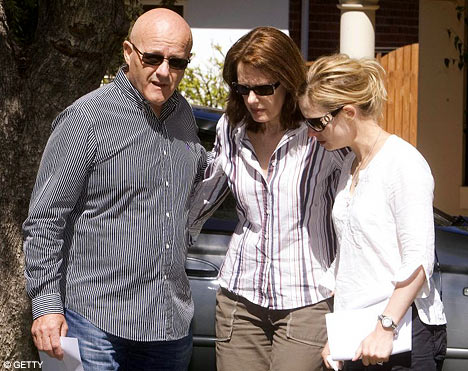
The actor was nominated for an Oscar and had to endure whispers and wisecracks about his own sexuality.
This was mildly ironic as while filming Brokeback he met and fell in love with Miss Williams, who played his on-screen wife.
He said it happened on the first day of filming in Canada.
“We were knee-deep in snow and on the fifth take, Michelle and I were tobogganing down the hill; we were supposed to fall off, having a fun time.
“(But) Michelle was screaming in pain. She’d twisted her knee – she was pretty much on crutches for the rest of the shoot. And I felt I always had to look after her after that.”
So swift and powerful was the romance that she was pregnant before the production was completed, and a mother before its release.
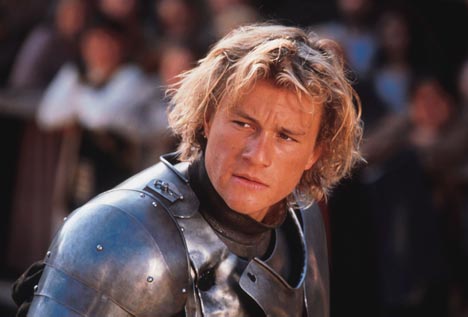
Matilda was born in October 2005. Ledger and Williams became Hollywood’s favorite couple. The actor was unusually unguarded about the relationship.
In March 2006 he said: “Michelle and I are like two peas in a pod. Every day I just fall deeper and deeper in love with my two girls.”
The couple said they planned to have six children.
A marriage license was applied for and they set up home in unpretentious South Brooklyn.
Ledger seemed to have found a counterbalance to the frustrations of Hollywood.
In an interview published 15 months ago, he confided: “I’m incredibly grateful. It’s about how lucky I am to have this family, right now.
“That, for me, blows my mind. It’s like, everything else? Who gives a f***?”
He and his fiancee worked together soon after Brokeback on the recently released Bob Dylan biopic I’m Not There.
Demand for his services naturally increased and he was away from home more and more.
Then, last summer, rumors began to circulate that this apparently blissful family was broken.
There were stories that depressed by the split, Ledger had developed a heroin addiction and entered rehab in September.
If so, he also kept working very hard. And, as he recently admitted, he used prescription drugs to help counter insomnia and nerves that still afflicted him.
In one of his last interviews, in November, he talked about taking the drug Ambien to deal with his insomnia while working on the latest Batman movie in which he played the Joker. The drug was among five found by his body.
“Last week I probably slept an average of two hours a night,” he said.
“I couldn’t stop thinking. My body was exhausted and my mind was still going.”
The last six weeks of his life took him from London to Australia, back to London and on to New York. He was due to travel to Vancouver to continue filming.
Perhaps there were their intimations of mortality in those final, exhausting weeks.
One source suggested he was suffering from pneumonia. Certainly, he spoke of death in at least two interviews.
Talking about fatherhood two months ago Ledger said he felt “good about dying” because he would live on through his daughter.
“I think you also look at death differently,” he said.
“It’s like a Catch-22 – I feel good about dying now because I feel like I’m alive in her.
“But at the same time, you don’t want to die because you want to be around for the rest of her life. It’s kind of like an interesting kind of little set-up.”

